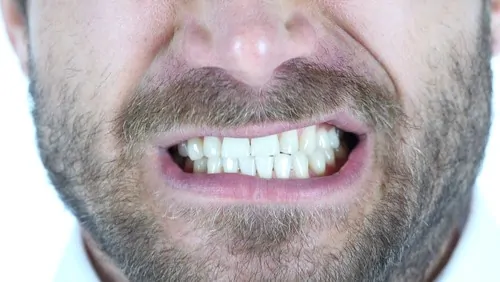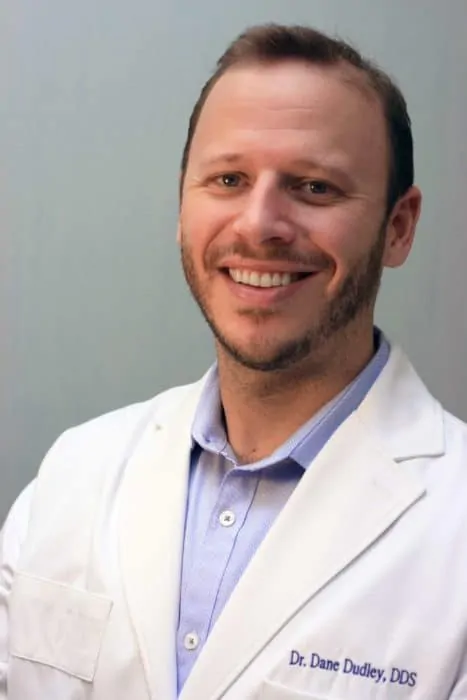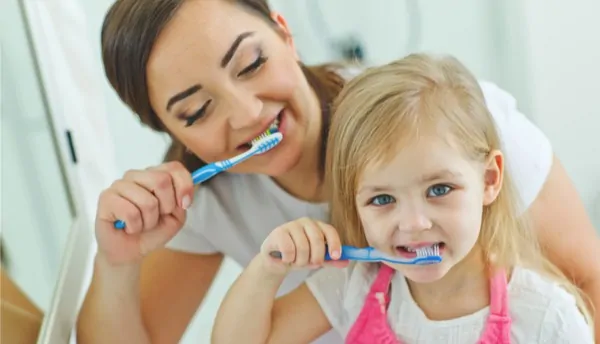During these times of change and uncertainty, it’s only natural to feel stressed out. After all, we’ve all been thrust into staying at home and figuring out our new, temporary norm. Your dentist in Lompoc understands. We’re in this together, and we’d like to help by talking about how stress can affect your oral health while also providing you a few tips on how you can lower your stress during stressful times.
How Our Bodies React to Stress
Stress affects different people in different ways, and what happens to one person may not happen to another. Knowing that, let’s take a look at some of the ways our oral health tends to respond to stress.
Teeth Clenching & Grinding – One of the most common correlations between stress and oral health is our body’s often subconscious response to clench and grind our teeth. Most of the time, we may not even know we’re doing these things until we start to experience the side effects. The pressure of repeated teeth-on-teeth clenching can be too much for our teeth and may lead to some serious concerns including chipped, cracked, broken, or worn down teeth. But that’s not all. Constant clenching or grinding can put unnatural stress on our jaw joint and jaw muscles, which can cause jaw pain and the development of TMJ disorder. TMJ disorder and jaw pain can often be treated successfully, so if you recognize any clicking or popping in the jaw joint, jaw pain, or occasional jaw locking call your dentist in Lompoc.*
Gum Disease – Gum disease is a serious oral health problem that can contribute to other whole-body health concerns such as the increased risk of heart disease, kidney disease, respiratory disease, and some cancers. Usually, gum disease is a result of inadequate oral hygiene, not seeing your dentist regularly, or tobacco use. However, recent studies have also shown a connection between increased stress and the occurrence of gum disease. Gum disease can be treated if caught early, so if you notice bleeding gums, bad breath that doesn’t go away, or swollen, painful gums, see your dentist.
De-Stress to Protect
Your dentist in Lompoc wants to encourage you to try different things to help you de-stress, for your overall health, mental health, and yes, your oral health. Some things you can try include:
Sleeping Well. Getting enough sleep is important to help lower stress and keep your overall body functioning well. Having trouble sleeping? Avoid blue light at least an hour before bed, listen to calming music or relaxing sounds, and keep a regular sleep schedule (yes, even on weekends).
Exercising Daily. Hop on the treadmill or stationary bike, go for a walk, do some yoga, but whatever you do, do some sort of exercise daily. Regular exercise naturally lowers stress by giving your body and brain a surge of endorphins, which make you feel happy and more relaxed.
Meditating. Believe it or not, simply focusing on your breath and practicing some deep breathing techniques can lower your heart rate and blood pressure and help you feel more relaxed. Look for a free app on your phone or videos online to help guide you through breathing exercises or full meditation sessions.
It’s more important now than ever before to work on decreasing stress levels. We hope some of the tips above help. As we’ve mentioned before, stress is different for everyone, and that also includes stress management. Try to find the method that works best for you.
*At the time of publishing, the ADA recommends that all preventive dental appointments and non-emergency consultations be postponed. Please check with your local regulations.





